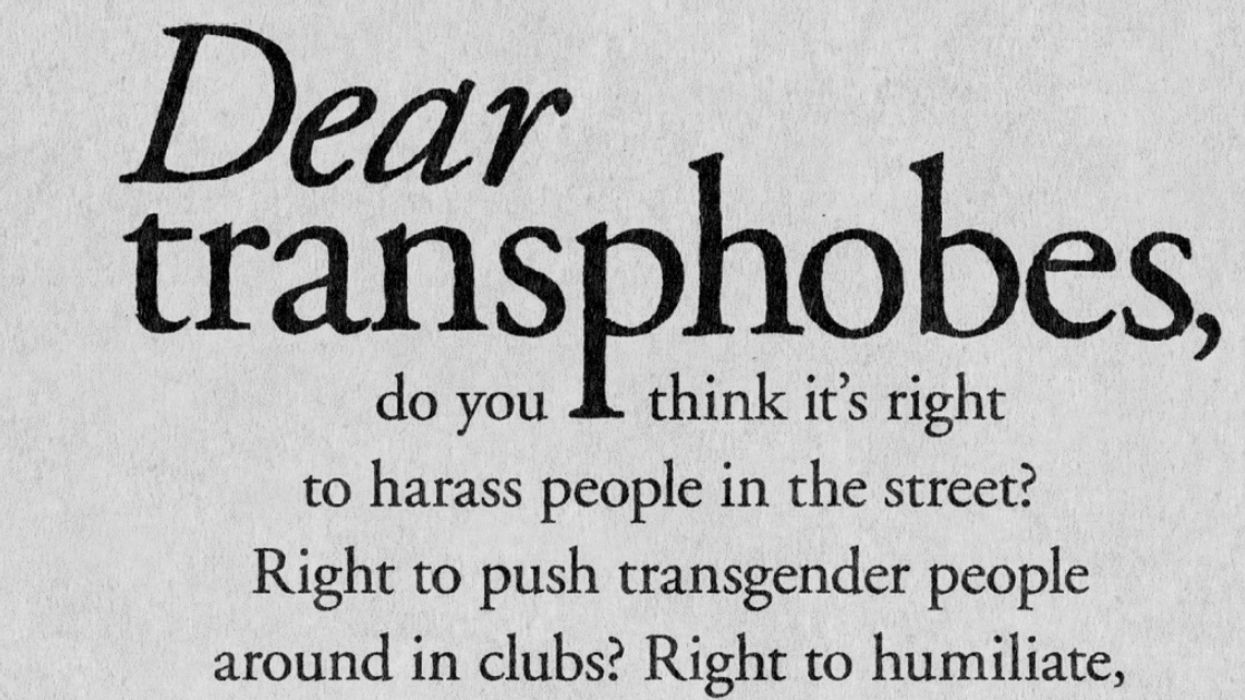February, 2002, SACRAMENTO, CA - As the plane began descending toward the Sacramento airport, the green patterns of the farm fields below shifted to suburban housing developments, then to a scattering of rectangular high rise buildings surrounding the golden dome of the state capitol. I tried to locate the Victorian structure of the Crocker Art Museum but the plane quickly flew past the downtown area and was again descending over farm fields. I could now see the airport approaching. I was arriving for the opening of one of the Japanese American National Museum's traveling exhibits, "Henry Sugimoto: Painting An American Experience" at the Crocker Art Museum of Sacramento.
This trip, however, was more than my fulfilling my duties as the Chairman of the Japanese American National Museum. Sacramento is a special place to me. It was to this land, one hundred years ago, that my grandparents came from Hiroshima, Japan. It was here that my grandfather began farming, growing strawberries, plums, and hops. It was here, in an old Victorian farmhouse that my mother was born. It was here in the soil of Sacramento, the capital city of California, that my American roots were first planted.
 The exhibit of Henry Sugimoto's paintings is also very personal to me. When World War II began, this gifted artist was among the 120,000 Japanese Americans who were rounded up by the U.S. military and incarcerated in American internment camps. He painted scenes of his imprisonment in the two camps in Arkansas -- Rohwer and Jerome. Rohwer was the camp to which my family was sent from our home in Los Angeles. I look at Sugimoto's paintings of the camp landscape and they remind me of the swampy creek where I used to play by the barbed wire fence. I remember the scenes he painted of the communal hubbub in the washroom, where babies were bathed as well as the laundry done. I recognize the picture in his painting of the long line at the mess hall where we queued up three times a day for our meals. I look at these paintings by Henry Sugimoto and I'm reminded of the fear and anxiety of fellow Americans that sent us into that barbed wire imprisonment. I hear from these images on canvas, the resonance of the fear and anxiety felt today toward people of Middle Eastern descent. These paintings of sixty years ago are profoundly relevant to our times today.
The exhibit of Henry Sugimoto's paintings is also very personal to me. When World War II began, this gifted artist was among the 120,000 Japanese Americans who were rounded up by the U.S. military and incarcerated in American internment camps. He painted scenes of his imprisonment in the two camps in Arkansas -- Rohwer and Jerome. Rohwer was the camp to which my family was sent from our home in Los Angeles. I look at Sugimoto's paintings of the camp landscape and they remind me of the swampy creek where I used to play by the barbed wire fence. I remember the scenes he painted of the communal hubbub in the washroom, where babies were bathed as well as the laundry done. I recognize the picture in his painting of the long line at the mess hall where we queued up three times a day for our meals. I look at these paintings by Henry Sugimoto and I'm reminded of the fear and anxiety of fellow Americans that sent us into that barbed wire imprisonment. I hear from these images on canvas, the resonance of the fear and anxiety felt today toward people of Middle Eastern descent. These paintings of sixty years ago are profoundly relevant to our times today.
We live in a time of terror. When in public places, when in congested places, certainly when we're at the airport, we feel an indefinable sense of anxiety.
 A dark, bearded person might fill us with some unease. That nervousness is not irrational. We are responding to what we have read, heard, or seen. That sense of unease might be called experiential "racial profiling." But race has to be just one part of the whole picture. That dark, bearded person might be a student or a dentist or a salesman -- nothing more. Simple racial profiling is an inadequate rationale for anxiety. Indeed, a terrorist can look like the all-American boy next door - like Timothy McVeigh.
A dark, bearded person might fill us with some unease. That nervousness is not irrational. We are responding to what we have read, heard, or seen. That sense of unease might be called experiential "racial profiling." But race has to be just one part of the whole picture. That dark, bearded person might be a student or a dentist or a salesman -- nothing more. Simple racial profiling is an inadequate rationale for anxiety. Indeed, a terrorist can look like the all-American boy next door - like Timothy McVeigh.
We are Americans, the most diverse people on this planet. We look like the people of the world - every race in every shape and form. We are also a people who subscribe to the rule of law - not of racial discrimination. We believe in a system of due process where a person cannot be detained without charges, due cause or right to counsel. That is what makes our system of justice so great. Yet, at times of stress, our government can react hastily and without clear thinking. In the aftermath of September 11th, Middle Eastern immigrant men have been detained without charges and without counsel, their families uninformed of where the men had been taken or when they might be released. It was exactly the same with Japanese immigrant men immediately after Pearl Harbor. This kind of racial profiling ultimately resulted in a most egregious violation of the U.S. Constitution - the wholesale removal and incarceration of all Japanese Americans from the West Coast. There was no due process - no charges, no trial, just imprisonment by race. The scenes that Henry Sugimoto painted from his "American Experience" have this profoundly important cautionary message for our times today.
The opening of the exhibit of Henry Sugimoto's works in Sacramento was a great success. I'm told that this was the biggest opening in the history of the Crocker Art Museum. In my mother's hometown, in my state capital, where my roots go down deep, my own American experience was hugely well received. The exhibit will be in Sacramento until March 24, 2002.
Scotland Tackles Transphobia and Homophobia In Brilliant New Billboard Ads ❤️
The Scottish government has had enough of hate crimes and is moving forward with a gutsy campaign.
According to Pink News, Scotland is launching a new initiative to combat intolerance with messages respectively addressing "bigots," "disablists," "homophobes," "racists," and "transphobes" in a series of ads circulating across the country.
Each message is signed on behalf of Scotland.
The campaign is part of the Scottish government's One Scotland project in an effort to reduce hate crime.
"The provocative ads were produced by the Scottish Government and Police Scotland as part of the One Scotland campa… https://t.co/KjinQL9xXT— Lizanne Foster (@Lizanne Foster) 1537935300.0
One letter reads:
"Dear transphobes, do you think it's right to harass people in the street? Right to push transgender people around in clubs? Right to humiliate, intimidate and threaten them online? Well we don't."
"That's why if we see you doing harm, we're reporting you. We believe people should be allowed to be themselves. Except if they're spreading hate."
"Yours, Scotland."
In another letter, the country says it has a "phobia" of homophobic behavior.
"If you torment people because of who they love, shout word that we are not going to write, or use violence because you don't like who someone is holding hands with, you should be worried."
"If we see or hear your abuse, we're calling the police. That's because love lives in this country, not hate."
"Yours, Scotland."
One Scotland's website describes the organization as one that aims to continue building an inclusive society while recognizing the significant strides made so far towards equality.
"One Scotland embodies the inclusive society we want in Scotland, where equality and human rights are respected and every individual and minority group feels valued."
There is a new ad campaign against hate crimes in Scotland. “We are a caring nation, not a hating one”.… https://t.co/rfsiFjIq6V— Jen Yang Mezei (@Jen Yang Mezei) 1537975493.0
The website defines hate crimes as abuse that "can be verbal or physical and has hugely damaging effects on the victims, their families and communities, and we all must play our part to challenge it."
"Police Scotland takes hate crime very seriously. In the last year there were over 5,300 charges of hate crime reported to the Procurator Fiscal in Scotland1."
"However, there are many more incidents that go unreported. We all have a responsibility to report hate crime if we witness it – it's the only way we can challenge it, and put an end to it for good."
The fact that the Scottish government and police are behind this ad campaign is incredible. It's good to see at lea… https://t.co/zMrqDVrhed— TransgenderDate (@TransgenderDate) 1537900917.0
Justice minister Humza Yousaf is familiar with being a victim of a bigotry and is encouraging people to call out and report any incidents involving harassment.
"As somebody who has faced Islamaphobic and racial abuse over the years, I know how upsetting being a victim of hate can be. Hate crime and prejudice are completely unacceptable and we are absolutely committed to tackling it."
"We all have a role to play in stamping out prejudice and I would ask anyone who witnesses a hate crime to play their part and report it. Justice agencies such the police and Crown Office will deal sensitively with reports made and people should have confidence in how they will be treated. Last year there were over 5,300 charges of hate crime reported to the Procurator Fiscal in Scotland but there are still many incidents that are going unreported."
New Ad Campaign launching on billboards and ad spaces all over #Scotland tackles #hatecime. The Police Scotland a… https://t.co/VJFH0jprjP— Pinksixty (@Pinksixty) 1537896702.0
Henrietta Mochrie identifies as transgender and has been the victim of repeated harassment and abuse. She emphasized the importance of speaking out against the hatred.
"I'll often get street harassment, sometimes this has escalated to the point where I've been followed by people shouting abuse at me, just because of who I am."
"It makes me feel really down and scared to leave the house. It's important that if you witness hate crime that you report it to take a stand against hate."
One Scotland's ad campaign officially launched on Wednesday.
Hopefully, it won't take too long before other nations follow suit in this bold, yet necessary fight for equality.
H/T - OneScotland, PinkNews, Twitter
Feminists Slam Man Telling Them They Can't Have Both Chivalry And Equality
A man on Twitter informed feminists they had to choose between chivalry and equality.
He was promptly raked over the coals for even assuming an antiquated concept would be considered as a viable option.
Twitter user @Rich_Cooper stated:
"Dear feminists. You either get equality or chivalry. You can't have both."
Dear feminists. You either get equality or chivalry. You can't have both.— Richard Cooper (@Richard Cooper) 1536083523.0
One user responded:
"I'll take equality. I don't need special treatment."
@Rich_Cooper #BenevolentSexism is still #sexism. I'll take equality. I don't need special treatment.— ☮️ Minkajane ☮️ (@☮️ Minkajane ☮️) 1537276790.0
Cooper's rhetorical question did not go over so well. Both women and men expressed their disdain for his message.
One male user observed that chivalry was irrelevant and treating everyone with kindness and respect was compulsory.
"What people care about is caring, empathic [sic], considerate, thoughtful people, NOT whether THEIR door is held for them or THEIR meal is paid for them."
"Are there gender stereotypes in het[erosexual] dating? Sure. But that's separate from being a warm, giving, caring, grounded person."
@Rich_Cooper What people care about is caring, empathic, considerate, thoughtful people, NOT whether THEIR door is… https://t.co/wlGHWRzKLi— Mark W. Wilson, MD (@Mark W. Wilson, MD) 1537276816.0
Some women got right down to the point.
@Rich_Cooper Translation: I will only be nice to you if you agree to be subservient to me— Elizabeth Noll (@Elizabeth Noll) 1537292709.0
@Rich_Cooper Gotta love when a man tells women what they can and can't have. Thanks for the heads up buddy 😉 https://t.co/gDMJscuTac— Hannah ✊ (@Hannah ✊) 1537285112.0
@Rich_Cooper Translation: I couldn’t possibly be expected to treat women as equals, show them respect, and still feel like a man.— Dom (@Dom) 1537293169.0
@Rich_Cooper We are sooooo bored with "chivalry" which stems from the courtly love period in the middle ages when w… https://t.co/wRho1a9DTz— Jeanthejust (@Jeanthejust) 1537280103.0
@Rich_Cooper Dear man. As a feminist, I open doors for men all the time. I also offer my seat to men in need on t… https://t.co/uxdwfh1kEM— My ovaries dream of puppers (@My ovaries dream of puppers) 1537502301.0
The notion of chivalry and equality are mutually exclusive and not a lot of people thought it was a major priority for feminists.
Common courtesy is not chivalry.
@Rich_Cooper Nah. That's some real childlike, oversimplified thinking. There are obviously more than these two op… https://t.co/lUqnEJhIAp— TheQuietRanger (@TheQuietRanger) 1537342901.0
@Rich_Cooper Wow, I had no idea that feminists were campaigning for chivalry, thanks for the Valuable Insight lol… https://t.co/iK62FTM9WY— Tracy Campbell the DM (Dungeon Mom) (@Tracy Campbell the DM (Dungeon Mom)) 1537294172.0
@Rich_Cooper I hold the door open for a guy walking into Starbucks behind me. Tomorrow, he might do the same for me… https://t.co/xWQEu6QHrM— Emma Scott (@Emma Scott) 1537294526.0
This user pointed out the fact that chivalry stems from a history of men outdoing other men. The concept had very little to do with women.
"Chivalry is a medieval concept of men dressing to impress other men. It has little to do with equality."
"Some men were on top, other men were beneath them. Historically, women were rarely invited into the process."
@Rich_Cooper @kent_imig Chivalry is a medieval concept of men dressing to impress other men. It has little to do wi… https://t.co/m8YPUkaUzm— Mark Findlay (@Mark Findlay) 1537257080.0
Neil Bradley described the outdated concept of chivalry as one that implies men being superior to women in a September 8, 2017, article for Medium publications.
"Examples: opening the door for a woman, paying for a woman's meal, gesturing for a woman to go first. The justification is either that women are not physically as strong (to open the door), able to provide (pay for their own meal), or are more deserving of compassion than men (allowing women to go first)."
Bradley also added that he wants to treat others the way he wants to be treated and asked if that approach should be motivated by chivalry or equality.
"If the genders are to be considered equal and treated equally, how a man treats a woman will essentially be the same as how a man treats a man."
"The obligation to open the door, pay for the meal, and let women go first vanishes. Men do not do this to other men, therefore why do it for women?"
His final take was that the two concepts can't co-exist. Either one is chivalrous or treats everyone as equals.
At the end of the day, people were happy to show chivalry the door.
@seanrmccauley @DoverCook @ShappiKhorsandi @Rich_Cooper @MarkFindlay26 @kent_imig Nobody needs chivalry. Equality a… https://t.co/isq5Fo84iU— John Dougherty (@John Dougherty) 1537357843.0
H/T - GettyImages, Twitter, Indy100, Medium
Katy Perry, P!nk, Paul McCartney And More Sign Letter Threatening To Boycott SiriusXM Radio
Hundreds of artists have signed a letter threatening a boycott if SiriusXM's parent company, Liberty Media, doesn't back down from opposing the Music Modernization Act.
The act, which was expected to pass through Congress, streamlines royalty payments in the new age of digital technology, but it seems SiriusXM is objecting to a small section that would have the satellite radio company paying royalties on recordings dating before 1972.
That's a whole lot of songs and a whole lot of money the company is hoping to skip out on paying, but not if stars like Paul McCartney, P!nk, Stevie Nicks, Sia, Carly Simon, Gloria Estefan, Mick Fleetwood, Don Henley, Max Martin, and Katy Perry can help it.
The letter read, in part:
I'm writing you with grave concern about SiriusXM's opposition to the Music Modernization Act (Classics Act included).
We are all aware of your company's objections and trepidation but let me say that this is an opportunity for SiriusXM to take a leadership position. As you are aware, 415 Representatives and 76 Senators have already cosponsored the MMA along with industry consensus. It's SiriusXM vs all of us. We can either fight to the bitter end or celebrate this victory together. Rather than watch bad press and ill will pile up against SiriusXM, why not come out supporting the most consequential music legislation in 109 years? We do not want to fight and boycott your company but we will as we have other opponents. Stand with us! Be brave and take credit for being the heroes who helped the MMA become historic law! Momentum is building against SiriusXM and you still have an opportunity to come out on the right side of history. We look forward to your endorsement but the fire is burning and only you can put this out.
SiriusXM resoponded with a letter of their own:
Over the past several weeks, we have been the subject of some stinging attacks from the music community and artists regarding our views on the Music Modernization Act. Contrary to new reports and letters, this is really not about a SiriusXM victory, but implementing some simple, reasonable and straightforward amendments to MMA. There is nothing in our "asks" that gut the MMA or kills the Act. So let's talk about the substance of the amendments we propose, because we truly do not understand the objections or why these concepts have incited such a holy war.ontrary to the accusations, SiriusXM has proposed three simple amendments to the MMA.
First, SiriusXM has asked that the CLASSICS Act recognize that it has already licensed all of the pre-1972 works it uses. This amendment would ensure that artists – the people who are supposed to be at the heart of the MMA – receive 50% of the monies under those existing licenses. Is that unfair? Just today, Neil Diamond wrote in the LA Times that: "I receive a small amount of songwriting royalties, but no royalties as the recording artist." How can that happen? To date, SiriusXM has paid nearly $250 million dollars in pre-'72 royalties to the record labels. We want to make sure that a fair share of the monies we have paid, and will pay, under these licenses gets to performers. Without this provision, artists may never see any of the money SiriusXM paid, and will pay, for the use of pre-1972 works. Artists not getting paid hurts our business!
Second, Sirius XM thinks that the fair standard to use in rate setting proceedings is the standard that Congress chose in 1995 and confirmed again in 1998 – which is called the 801(b) standard. However, we are willing to move the "willing buyer/willing seller" standard contained in the MMA. In exchange, we have asked for the same concession that the MMA grants to other digital music services, but we were left out of — simply that the rates that were set last year for five years now apply for ten years. We thought this was a fair compromise when we read the "new" MMA that was released this weekend by the Senate, and are willing to live by that compromise.
Third, SiriusXM is asking the simple question: "Why are we changing the rate court evidence standard for musical compositions in this legislation so that it gives another advantage to broadcasters over satellite radio and streaming services?" There is no policy rationale for this change to tilt the playing field further in their favor, and frankly no one has been able to explain it to us. It is only fair that we debate why the change to Section 114(i) is in the MMA.
Did you all catch that? It sounds like lawyer speak for "we don't really want to say where we stand."
It seems all the letters were for naught. The Music Modernization Act passed in the U.S. Senate.
The #MusicModernizationAct has been passed by the U.S. Senate! 🎶 Along with our members across the country, we're e… https://t.co/52yNhtV4zk— Recording Academy / GRAMMYs (@Recording Academy / GRAMMYs) 1537318533.0
@kayhanley @SIRIUSXM Hi @kayhanley, I absolutely support the #MusicModernizationAct. I signed on as a cosponsor ear… https://t.co/j4JHXpLBxI— Elizabeth Warren (@Elizabeth Warren) 1537225190.0
People said this was impossible. Some even worked hard to make it impossible, even telling outright lies about wh… https://t.co/iMTlwJLWVw— Future of Music Coalition (@Future of Music Coalition) 1537309844.0
We're thrilled to share that the Senate has unanimously voted to pass the #MusicModernizationAct, an historic miles… https://t.co/Uuy2Yp8zCw— ASCAP (@ASCAP) 1537311517.0
It was time to celebrate and dance in the streets.
@ASCAP @Beth_ASCAP Grateful. That says it all. Grateful past language for the sweet souls who worked so hard to mak… https://t.co/JSeUNCwFSd— Paul Williams (@Paul Williams) 1537319434.0
@ASCAP @Beth_ASCAP @IMPaulWilliams YES!!!! Songwriters are dancing everywhere!— James Grey (@James Grey) 1537315642.0
@ASCAP @Beth_ASCAP @IMPaulWilliams Thank you for helping us all organize to get this done #MusicModernizationAct— Tangent Recording (@Tangent Recording) 1537311639.0
@ASCAP @Beth_ASCAP @IMPaulWilliams Greatness Is What Greatness Does....And This Is Great.— Eddie C Person Jr (@Eddie C Person Jr) 1537365270.0
@ASCAP @Beth_ASCAP @IMPaulWilliams #Love it!— CKGTHEDON (@CKGTHEDON) 1537315443.0
@ASCAP @Beth_ASCAP @IMPaulWilliams Fantastic News! Thank You U.S. Senate ~> Pass it House Of Representatives ~> Sig… https://t.co/tukiZ8Ryug— MarkAlexanderCarroll (@MarkAlexanderCarroll) 1537321589.0
@ASCAP @Beth_ASCAP @IMPaulWilliams Simply amazing hard work pays off.— PedroBarr (@PedroBarr) 1537320953.0
@ASCAP @Beth_ASCAP @IMPaulWilliams Thank all of you for your tireless efforts and work.Protecting what is important… https://t.co/goFps7yu2V— Roney Hooks (@Roney Hooks) 1537317136.0
@ASCAP @Beth_ASCAP @IMPaulWilliams I am so thankful for this wonderful change. We songwriters deserve it!— J.R. FOWLER (@J.R. FOWLER) 1537322119.0
As the saying goes, honest pay for honest work.
Some Residents Of Uranus, Missouri Are Not Happy About The Name Of Their New Local Newspaper 😆
There's nothing like a good pun about human anatomy. Really gets the juices flowing!
The Uranus Examiner is coming to this Missouri town. Yes, really. https://t.co/RKy7kDcCFT— The Kansas City Star (@The Kansas City Star) 1536865442.0
Owners of the new Uranus Examiner must have been snickering as they announced the paper's name. Apparently, it's caused quite the controversy in the small town of Uranus, Missouri, over the last few days.
Residents are divided over whether the pun is an embarrassment or perfectly snarky:
“It’s a serious newspaper!” declares the managing editor of the Uranus Examiner. @nypost https://t.co/uig5eYxT2t— Bryan A. Garner (@Bryan A. Garner) 1537038088.0
Folks on the internet responded with maturity and composure after learning about the Uranus Examiner.
Oh, wait. No they didn't.
@qikipedia Uranus Examiner... it's got a nice ring to it 😀.— Roy Elliott (@Roy Elliott) 1537364058.0
I pitched “The Regina Monologues” as the name for my column at the Regina Leader-Post and was unceremoniously turn… https://t.co/aejjXcooWK— Jana G. Pruden (@Jana G. Pruden) 1536938407.0
If we ever colonize Uranus, the hardest part will be picked a newspaper name. "The Uranus Examiner"? Gonna be rough.— Scott Johnson (@Scott Johnson) 1537192690.0
@qikipedia How is it I've lived in Missouri my whole life and never gone through Uranus— Joshua Ryman, Sigma Grindcore Consultant (@Joshua Ryman, Sigma Grindcore Consultant) 1537366074.0
The newspaper name is a source of controversy — “Butt I like it,” the Uranus mayor said. https://t.co/xZWn4qthd1— Kaitlyn Alanis (@Kaitlyn Alanis) 1536865208.0
If you think about it... there might actually be a method to the madness here. The brand new paper's name has received widespread media coverage over this past week. Simply put... everyone's talking about Uranus.
In terms of publicizing their new venture, the owners of the Uranus Examiner have actually done a pretty sweet job!
In the video above, a woman suggests the paper should have been called "The Pulaski County Examiner."
If you ask me, that's TOTALLY BORING, and wouldn't have generated as much interest and publicity for the paper. So while the name might be cringeworthy to some, you can bet Uranus that it'll stick around. Who knows, Uranus might even grow as a result!
H/T: Indy100, The Kansas City Star












 (
( (
(




